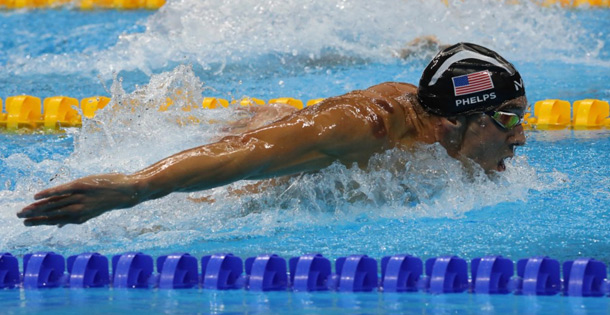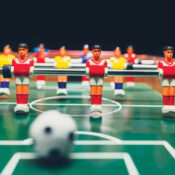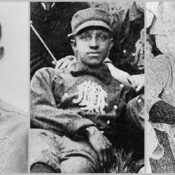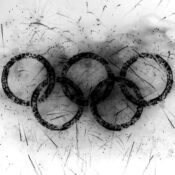Maybe there’s something special about August 17 and sports. In 1933, Lou Gehrig played his 1,308th consecutive game. In 1969, the New York Jets and the New York Giants played each other for the first time. In 1973, Willie Mays turned a pitch from Reds leftie Don Gullett into the 660th and final home run of his peerless career. And 10 years ago today in 2008, Michael Phelps did the seemingly impossible by taking eight gold medals in a single Olympic Games.
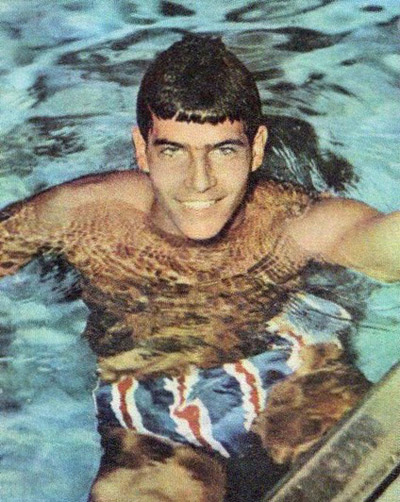
The previous record of seven golds in a single Games had been set in 1972 by another American swimmer, Mark Spitz. Spitz was a legitimate superstar. Not only did he win seven events in ’72, he broke the world record in each one. His career gold medal total would be nine, while also notching a silver and a bronze. In addition, he would take five Pan American Games golds, 31 Amateur Athletic Union titles, and eight NCAA championships. In addition to the seven at the ’72 games, he would set another 28 world records during his career. He retired at the ripe old age of 22.
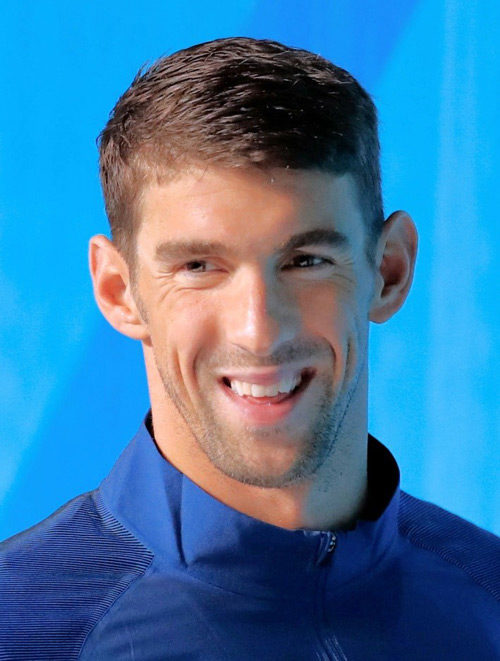
Spitz’s record was viewed as untouchable, a once in a generation, or maybe millennium, achievement. Then came Phelps. He began swimming at seven, and was the national youth record holder in the 100m butterfly by age 10. Even then, pundits were dissecting the details of what exactly made Phelps an ideal swimmer. Bob Bowman, who has coached Phelps since he turned 11, attributes some of his success to “rigid focus.” Bob Schaller, author of Michael Phelps: The Untold Story of a Champion, elaborated on another element of Phelps’s success: his relationship with Bowman. Schaller says, “The fit was perfect. Bob was made to coach Michael . . . That he and Michael were in perfect step is part of the miracle that was Michael’s career.” In fact, at the outset of the Bowman/Phelps partnership, Schaller had the chance to ask Bowman how he planned to coach the “Gangly with a capital G” young man. Bowman told him, “”There is no blueprint for this. I will either screw this up so badly that no one will forgive me, or we’ll get it right and no one will forget me.”
Others have commented on Phelps’s unusual physique, including the swimmer himself. In his 2009 book with Alan Abrahamson, No Limits: The Will to Succeed, Phelps suggests that his body type played a large role in his success in the pool. His 6’4” height, his unusually long wingspan (6’ 7”), his lean frame, and his size-14 feet would each contribute advantages in terms of start, propulsion, and movement in the water.
Going into the 2008 Games, Phelps had already notched an incredible record of achievement. He qualified for the 2000 Olympics at age 15 but finished out of the medals. At the 2001 World Championships, before turning 16, Phelps broke the 200m butterfly world record and took gold. This was a significant indicator of the future for Phelps. As Schaller says, “The 200 fly is the kingmaker in men’s swimming.” After that win, Phelps embarked on an incredible winning streak; through the 2002 Pan Pacific championships to the 2003 Worlds, he pulled down another seven golds (two in relays), four silvers (two in relays), and four world records. The 2004 Olympic Games assured the world of Phelps’s place in history; he won six golds (two in relays) and two bronzes (one in a relay).
Highlights of Phelps from the 2004 Olympic Games.
Shortly after the opening of the 2008 Olympic Games on August 8, Phelps set an Olympic record in his preliminary heat for the 400m individual medley; he subsequently won gold in the event while breaking his own brand-new record by two seconds. As the event went on, whether alone or on relay squads, Phelps dominated the competition, shattering records in every event. Phelps took his seventh gold medal of the games in the 100m butterfly.
But one more race remained. On August 17, Phelps joined teammates Brendan Hansen, Aaron Peirsol, and Jason Lezak in the pool for the 4x100m medley relay. The U.S. team was behind Japan and Australia heading into the third leg. When Phelps hit the water to do the 100m butterfly, he moved at a record-breaking pace, turning in the fastest time ever for the butterfly split in the event. When Lezak dove in, Phelps had handed him a half-second lead. It would be enough. Michael Phelps had eight gold medals in one Olympics.
Team USA compiled a highlight reel of Phelps’s eight Olympic gold medal wins in 2008.
For a normal human, that might have been enough. But for the swimmer that his teammates, competition, and commentators call “Superman,” that was simply one peak in a career of mountain ranges. He took four golds and two silvers at the 2012 Olympics, and another five golds and one silver in 2016. His World and Pan Pacific success continued, with a combined 17 further golds earned at events between 2009 and 2014, as well as another five silvers and one bronze. Phelps didn’t swim the Worlds in 2015 after being excluded from the team after being cited for DUI; however, he did compete in both the U. S. Nationals and Winter Nationals, winning three golds in each.
At the 2016 Olympic Games in Brazil, Phelps’s teammates voted for him to carry the flag of the United States at the Opening Ceremonies.
Become a Saturday Evening Post member and enjoy unlimited access. Subscribe now
